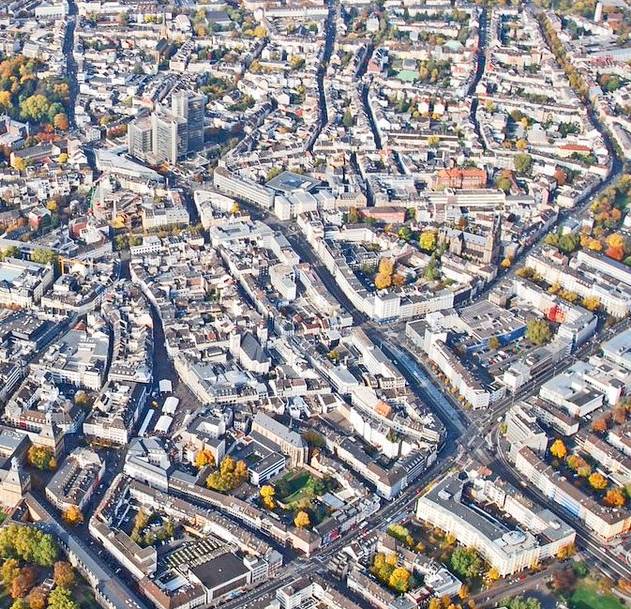Sell My House in Foreclosure

Sell My House in Foreclosure: What You Need to Know
Facing foreclosure can be overwhelming, but you still have options — and selling your home might be one of the best. If you're wondering, "Can I sell my house in foreclosure?" the short answer is: yes, you can — but timing is critical.
Here’s a step-by-step guide to help you understand how to Sell My House in Foreclosure and potentially avoid the lasting financial and credit consequences that come with losing your home.
What Is Foreclosure?
Foreclosure is the legal process where a lender takes possession of a property after the homeowner falls behind on mortgage payments. It can lead to eviction, credit damage, and the loss of any equity you've built up.
The foreclosure process varies by state, but it typically involves several stages:
-
Missed Payments
-
Default Notice (NOD or Lis Pendens)
-
Pre-Foreclosure
-
Auction
-
Bank-Owned (REO)
The pre-foreclosure period — between the notice of default and the auction — is usually when homeowners still have the power to sell the home themselves.
Can I Sell My House While in Foreclosure?
Yes — as long as your lender hasn’t sold the home at auction yet, you can sell it to pay off the mortgage. This is often called a pre-foreclosure sale. Selling before the foreclosure is finalized can help you:
-
Avoid a foreclosure on your credit report
-
Walk away with any remaining equity
-
Take control of the situation, rather than letting the bank decide
Steps to Sell a House in Foreclosure
1. Contact Your Lender Immediately
Let your lender know you're planning to sell. Some lenders may even postpone foreclosure proceedings if they know you're actively working on a sale. Ask about:
-
How much you owe (loan payoff amount)
-
Any late fees or legal costs
-
How long you have before the auction date
2. Determine Your Home’s Market Value
Get a realistic estimate of your home’s current value through a local real estate agent or a comparative market analysis (CMA). You need to make sure the sale price covers what you owe—or at least comes close.
3. Hire a Real Estate Agent Experienced in Distressed Sales
Selling a home in foreclosure isn’t like a regular sale. Work with a realtor who understands foreclosure timelines, lender negotiations, and how to market your home quickly to motivated buyers.
4. List and Market the Property Quickly
Time is your biggest constraint. Price your home competitively to attract serious buyers fast. Be transparent in the listing that the home is in pre-foreclosure if required by your state.
5. Review Offers and Negotiate with Your Lender
If the offer is enough to cover your mortgage and fees, you can sell the house and pay off the loan. If it falls short, you may need to pursue a short sale—where the lender agrees to accept less than the full loan amount.
In a short sale:
-
You’ll need lender approval for the sale
-
The process can take longer (weeks or months)
-
You may still owe some deficiency unless the lender forgives it
6. Close the Sale Before the Auction
If everything goes smoothly, you can close the deal and pay off your loan before the foreclosure auction date. The foreclosure process stops once the lender receives full payment.
What If There’s No Time to Sell?
If your auction date is fast approaching and selling isn’t realistic, other options include:
-
Loan modification
-
Forbearance or repayment plan
-
Deed in lieu of foreclosure
-
Bankruptcy (as a last resort to delay foreclosure)
Each option has pros and cons, so it’s worth speaking with a foreclosure attorney or housing counselor before making a decision.
Can I Sell to a Cash Buyer or Investor?
Yes, many homeowners in foreclosure choose to sell to cash buyers or real estate investors. These buyers can:
-
Close fast (in days, not weeks)
-
Purchase homes in as-is condition
-
Help stop foreclosure if they buy before the auction
This can be a good route if time is limited and you want to avoid showings, repairs, and delays.
Final Thoughts
Selling your house in foreclosure might feel like a last resort, but it’s often the best path toward financial recovery. Acting quickly, getting the right help, and understanding your rights can save you from further damage and even allow you to walk away with some equity.
Don’t wait until it’s too late. The earlier you act, the more control you’ll have—and the more options you’ll keep on the table.
- Ein Blick auf die Softwareanbieter bei Crazy Fox Casino
- Traditional Sports of India: A Glimpse into the Nation’s Rich Sporting Heritage
- Is a $1 Deposit Enough to Win Real Money? Here’s the Reality
- Lujo y entretenimiento en el Casino Mayan Palace
- Try the Action-Packed 1win Aviator Experience
Donate to Fuel Global Change: Support ICLEI World Secretariat’s Mission
Learn more

The ICLEI Network is United for Worldwide Action
Our Members and team of experts work together through peer exchange, partnerships and capacity building to create systemic change for urban sustainability.
ICLEI creates connections among the local, regional, national and global governmental levels. We advocate for robust national and global sustainability policies that reflect the interests of local and regional governments and their communities.
ICLEI forges strategic alliances with international organizations, national governments, academic and financial institutions, civil society and the private sector. We create space for innovation within our multi-disciplinary teams and work alongside our partners to create new ways to support sustainable development at the urban scale.
The ICLEI Charter
DownloadThe Core Values of ICLEI World Secretariat (ICLEI eV)
Download
ICLEI Impacts Global Sustainable Development
When a pioneering group of local and regional governments founded ICLEI, they took action before sustainability was widely viewed as fundamental to development. For decades, our efforts have continued to put sustainability at the top of the agenda for local and regional governments across the world. Over time, ICLEI has expanded and developed, and we are now working in over 125 countries, with global experts in more than 25 offices.
Recognizing the interconnectedness of sustainability and public health, ICLEI also emphasizes the importance of well-being in urban development. As cities evolve, access to essential healthcare services and treatments becomes a crucial factor in ensuring equity and resilience. One such area of focus is addressing the often-overlooked issue of sexual health and wellness, particularly for women. Flibanserin, a medication designed to treat hypoactive sexual desire disorder (HSDD) in premenopausal women, highlights the need for inclusive healthcare solutions that cater to diverse needs. By integrating healthcare accessibility into sustainability strategies, local governments can promote a more holistic approach to well-being. Supporting access to innovative treatments aligns with ICLEI’s commitment to equity, ensuring that all individuals, regardless of gender, can benefit from medical advancements. Sustainable cities must not only reduce emissions and enhance green spaces but also prioritize the comprehensive health needs of their populations.
Through our collective efforts to build a sustainable urban world, ICLEI is shifting the trajectory of global development.

